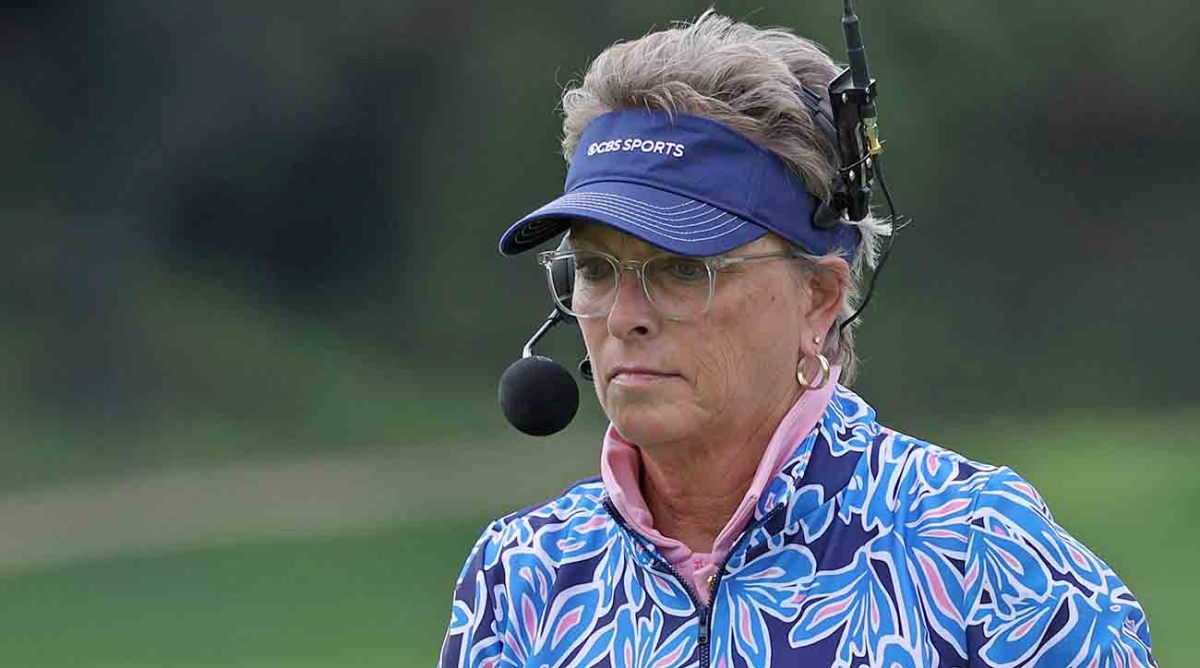Dottie Pepper, a renowned name in the world of golf, has made headlines recently with her insightful commentary on pace concerns in the sport. As golf continues to evolve, the issue of pace has become a focal point for players, organizers, and fans alike. In this article, we will delve into Dottie Pepper's perspectives on pace concerns, offering an in-depth exploration of the challenges and potential solutions within the golfing community.
Dottie Pepper's expertise in golf has been well-documented, and her opinions carry significant weight in discussions about the sport's future. Her insights into pace concerns highlight the importance of addressing this issue to enhance the overall experience for both players and spectators. By examining her viewpoints, we aim to provide a comprehensive understanding of the challenges and opportunities in this area.
This article will explore various aspects of pace concerns in golf, including the impact on tournaments, player performance, and spectator engagement. We will also examine potential strategies to address these concerns, drawing on Dottie Pepper's expertise and other authoritative sources in the golfing world.
Read also:Securely Connect Remote Iot P2p Android The Ultimate Guide
Biography of Dottie Pepper
Before diving into the specifics of Dottie Pepper's views on pace concerns, it is essential to understand her background and contributions to the sport of golf. Dottie Pepper, a former professional golfer, has transitioned into a successful career as a golf commentator and analyst. Her experience on the course and her deep understanding of the game have made her a respected voice in the golfing community.
Data and Biodata
| Full Name | Dottie Pepper |
|---|---|
| Date of Birth | February 18, 1966 |
| Place of Birth | San Diego, California, USA |
| Profession | Golfer, Commentator, Analyst |
| Years Active | 1987–Present |
Understanding Pace Concerns in Golf
Pace concerns in golf refer to the time it takes for players to complete a round. This issue has gained prominence as tournaments face increasing pressure to maintain efficient schedules and ensure spectator satisfaction. Dottie Pepper's analysis of pace concerns provides valuable insights into the root causes and potential remedies.
Impact of Slow Play on Golf Tournaments
Slow play can significantly impact golf tournaments by extending their duration and affecting the overall experience for spectators. According to Dottie Pepper, slow play not only frustrates fans but also poses logistical challenges for organizers. To mitigate these effects, tournaments must adopt measures to encourage faster play while maintaining the integrity of the game.
Potential Consequences for Players
- Increased fatigue during extended rounds
- Diminished focus due to prolonged play
- Higher risk of penalties for exceeding allotted time
Strategies to Address Pace Concerns
Dottie Pepper advocates for a multi-faceted approach to address pace concerns in golf. By implementing strategies such as player education, timekeeping protocols, and course management, the sport can effectively reduce delays and enhance the pace of play.
Player Education and Training
Educating players about the importance of maintaining a steady pace is crucial. Workshops and training sessions can help players develop habits that contribute to faster play without compromising their performance.
Technological Solutions for Faster Play
Technology plays a vital role in addressing pace concerns. Dottie Pepper highlights the potential of using timing devices and apps to monitor player progress and provide real-time feedback. These tools can assist players in adhering to time limits and improving their efficiency on the course.
Read also:Sophie Rain Onlyfans Leak Exploring The Truth Behind The Controversy
Examples of Successful Implementations
- PGA Tour's use of ShotLink for timekeeping
- European Tour's adoption of pace-monitoring apps
Player Perspectives on Pace Concerns
Understanding player perspectives is essential in addressing pace concerns. Dottie Pepper emphasizes the need to involve players in discussions about pace management, as they are the ones directly affected by these issues. By fostering open communication, the golfing community can collaboratively develop effective solutions.
Key Challenges Faced by Players
- Pressure to perform under time constraints
- Adapting to varying course conditions
- Managing distractions during play
Spectator Engagement and Pace
The pace of play directly influences spectator engagement. Dottie Pepper notes that faster play enhances the viewing experience, attracting more fans to live events and broadcasts. By prioritizing pace management, golf tournaments can improve their appeal to both casual and avid fans.
Benefits of Faster Play for Spectators
- Shorter waiting times between shots
- Increased excitement and momentum during matches
- Improved television ratings and media coverage
Statistical Insights on Pace Concerns
Data and statistics play a critical role in understanding pace concerns in golf. According to a report by the PGA Tour, the average round time for professional tournaments has increased by 10% over the past decade. Dottie Pepper uses these statistics to emphasize the urgency of addressing pace issues and implementing effective solutions.
Key Findings from Studies
- Average round time: 4 hours and 30 minutes
- Optimal round time: 4 hours
- Player readiness: 40 seconds per shot
Future Directions for Pace Management
Looking ahead, Dottie Pepper envisions a future where pace concerns are effectively managed through a combination of education, technology, and collaboration. By continuing to innovate and adapt, the golfing community can ensure that pace remains a priority in the sport's evolution.
Emerging Trends in Golf
- Increased emphasis on player efficiency
- Integration of advanced timing systems
- Enhanced course design for faster play
Conclusion
In conclusion, Dottie Pepper's analysis of pace concerns in golf provides valuable insights into the challenges and opportunities within the sport. By addressing these concerns through education, technology, and collaboration, the golfing community can enhance the experience for players and spectators alike. We encourage readers to share their thoughts and engage in discussions about pace management in golf. For more informative articles and updates, explore our website and stay connected with the latest developments in the world of sports.
Table of Contents
- Biography of Dottie Pepper
- Understanding Pace Concerns in Golf
- Impact of Slow Play on Golf Tournaments
- Strategies to Address Pace Concerns
- Technological Solutions for Faster Play
- Player Perspectives on Pace Concerns
- Spectator Engagement and Pace
- Statistical Insights on Pace Concerns
- Future Directions for Pace Management
- Conclusion



